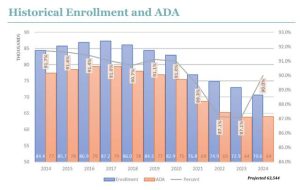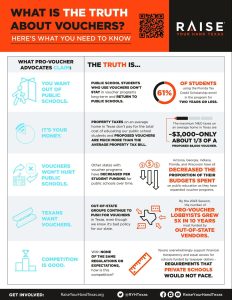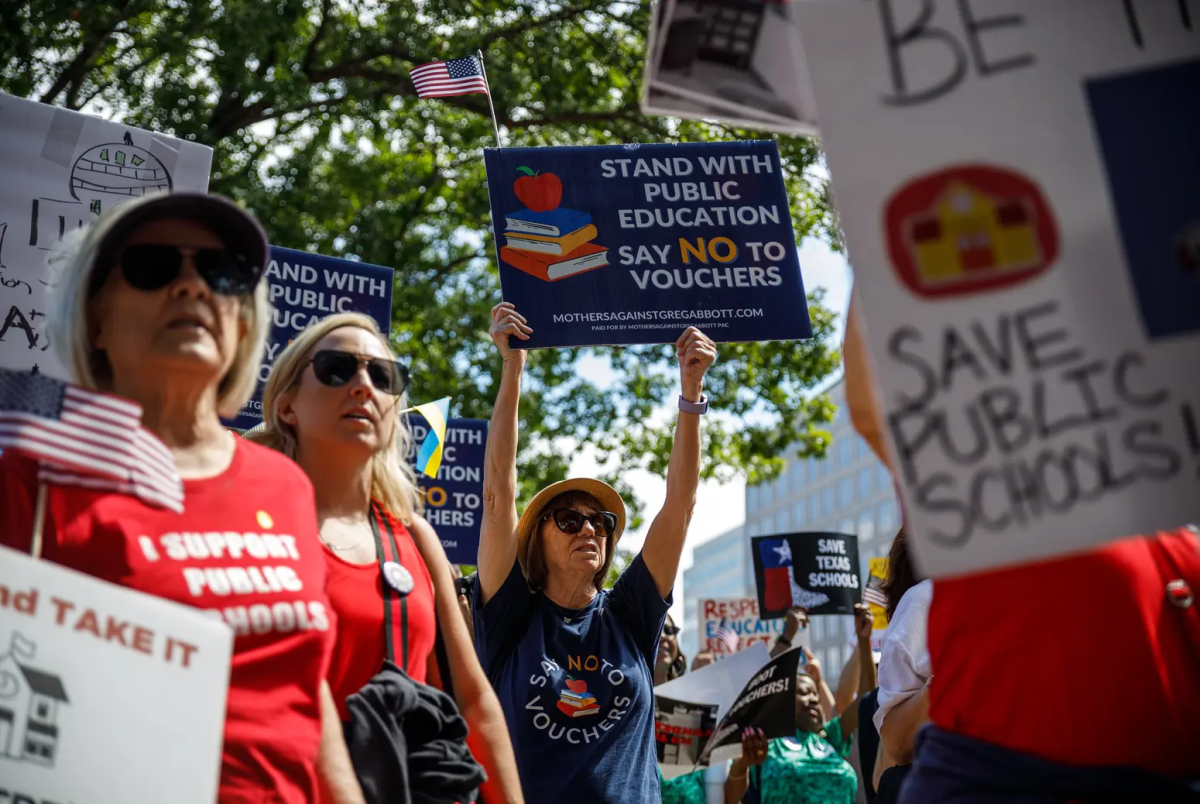For the first time in Texas history, the state legislature has entered a fourth special session in the same year as the regular session. Governor Abbott’s call for the fourth 30-day extension to the lawmaking period comes as the Texas House failed to reach a compromise on a school voucher bill during the third special session- one of Abbott’s top policy priorities this year.
What are school vouchers?
Governor Abbott has been vocal about his support for establishing an education savings account program in Texas, widely referred to as school vouchers. Still, many Texans are unfamiliar with what this educational policy entails.
According to the National Center for Education Statistics, 14 states and the District of Columbia (D.C.) offer school voucher programs to students. The specifics of these programs vary, but the concept is the same: families have access to state-funded programs that help them pay for private school tuition.
The FWISD Chief Finance Officer (CFO), Carmen Arrieta-Candelaria, provided her basic explanation of voucher programs. “Education savings accounts are essentially taxpayer-supported bank accounts for parents who remove their children from the public education system. Those parents get state money up front to pay for their educational expenses, like private school tuition, online schooling, or private tutors.”
In recent years, school choice advocacy groups have pressured state legislators to implement voucher programs. The national school choice organization, the American Federation for Children (AFC), is one of the biggest supporters of Texas’ strides to adopt school voucher legislation. The AFC argues that access to school choice vouchers is “a fundamental right for parents” and is imperative to educational freedom.
Implications
Not everyone is as big of a fan of school vouchers as our governor. Public school advocates and many Texas House representatives warn that state-funded voucher programs jeopardize public school funds. Critics warn that subsidizing private school tuition will only exacerbate enrollment decline in public school districts nationwide. Arrieta-Candelaria told the Pantherette that FWISD’s funding may suffer if the Texas Legislature passes a school voucher plan.
“If a school voucher plan is passed during this legislative session, school districts like FWISD may lose funding if students choose to enroll in private or other institutions. Funding for school districts is derived from students, i.e., the more students that the District has, the more funding it receives. Charter schools in the area have already enrolled many FWISD students, and this has caused the District to lose funding over the last few years.”

Opponents of school vouchers, like the non-profit public education advocacy group Raise Your Hand Texas, have contested that education savings account programs like Texas’ pending House Bill 1 fail to safeguard against the misuse of funding.
Senior Regional Advocacy Director of Raise Your Hand Texas, Natalia Ramback, asserted that implementing education savings accounts will pose a financial accountability issue if legislators fail to consider the security shortcomings of other states’ programs.
“If we started to take money from public schools, that money would not necessarily go to private schools. It could be a private vendor, meaning what has happened in other states is they can use the voucher and don’t have to go to a private school. In some states, I’ve seen people buying things that are not necessarily educational, but there’s no way to police it.”
She provided two hypothetical situations of ways a family may use voucher funds. “So your parents use that $1,000 and went to, say, St. John’s or even another private school, that’s nonreligious affiliation, right? But another family homeschooled and decided we’ll buy a computer and a TV because we’re going to use them for the curriculum. There’s no way of knowing where the public money was spent in either situation because there’s no accountability.”
Additionally, Ramback said that she’s not only worried about the possible misuse of education savings accounts but also the discrepancies in educational improvement markers and student inclusion efforts between public and private schooling.

“Private schools choose who they accept, and there isn’t any accountability for who they accept and who they do not. Are they improving because there’s not a test or any kind of measure that would mark growth as opposed to public school where you see the growth or the decline with kids that are taking the test in order to get out of high school or to advance to the next grade. None of that would be present with a voucher for a private school.”




